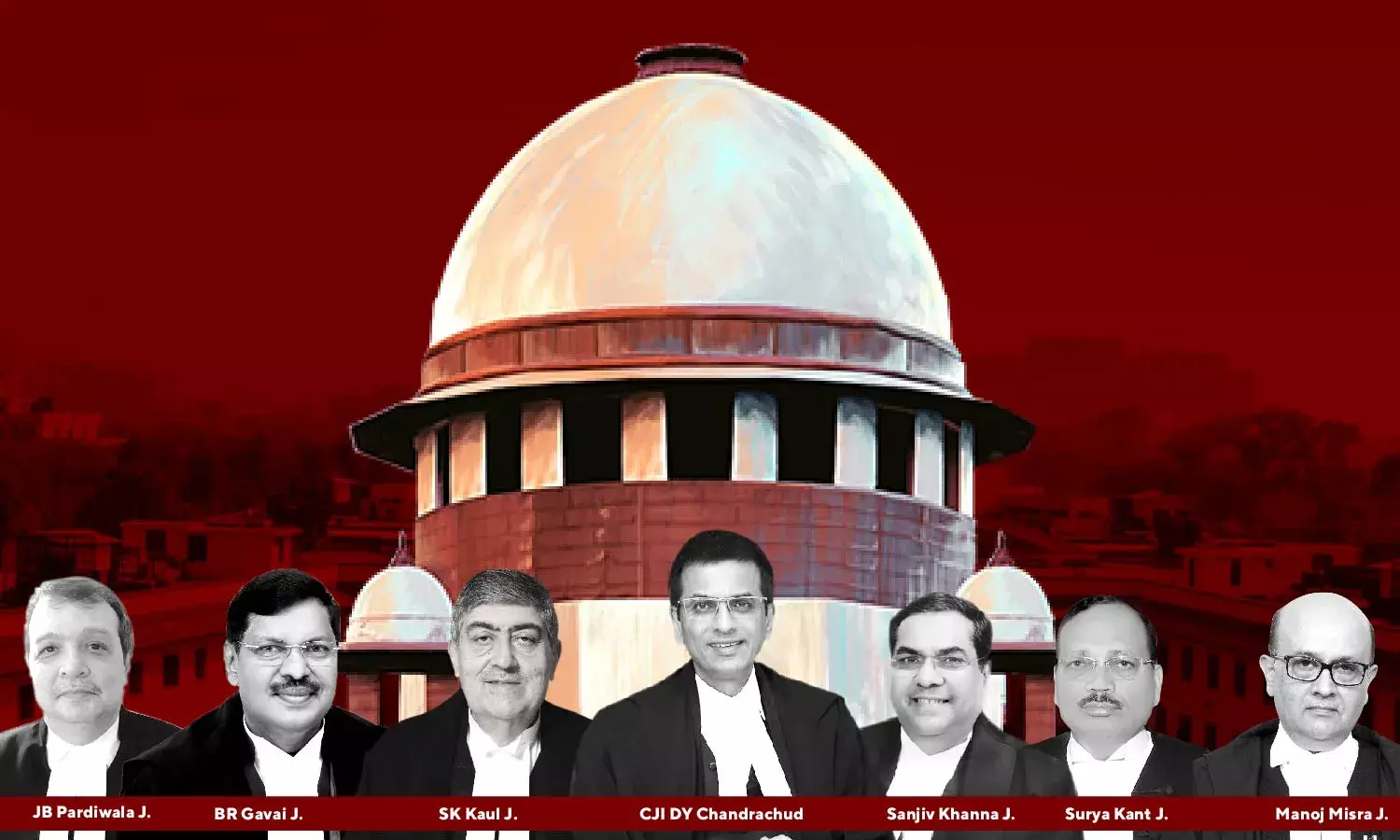Unstamped Arbitration Agreements Not Void: Supreme Court Seven Judges Bench Overrules 'N.N. Global Mercantile' Judgment

In an unanimous judgment, a seven-judge bench of the Supreme Court observed that unstamped or inadequately unstamped arbitration agreements do not become void or void ab initio or unenforceable.
“The nature of objections to the jurisdiction of an arbitral tribunal on the basis that Stamp duty has not been paid or is inadequate in such as can not be decided on a prima facie basis. Objection of this kind will require a detailed consideration of evidence and submissions and the finding as to the law as well as the facts. Obligating the courts to decide the issue of stamping under Section 8 or Section 11 stage will defeat the legislative intent underling the Arbitration Act”, the bench held in the judgment.
A Bench of comprising Chief Justice of India DY Chandrachud and Justice Sanjay Kishan Kaul, Justice Sanjiv Khanna, Justice BR Gavai, Justice Surya Kant, Justice JB Pardiwala and Justice Manoj Misra pronounced the judgment.
The bench also answered that Reference in the present matter is maintainable because apart from the curative petition there was an SLP pending in the matter.
Conclusion:
- Agreements which are not stamped or are inadequately stamped are inadmissible in evidence under Section 35 of the Stamp Act. Such agreements are not rendered void or void ab initio or unenforceable.
- Non stamping or inadequate stamping is a curable defect.
- An objection as to stamping does not fall for determination under Sections 8 or 11 of the Arbitration Act. The concerned court must examine whether the arbitration agreement prima facie exists.
- Any objection in relation to the stamping of the agreement fall within the ambit of the tribunal
- The decision in N.N. Global Mercantile (P) Ltd. v. Indo Unique Flame Ltd. is overruled to that extent.
In the present matter, while hearing a curative petition, a 5 Judge-Bench comprising Chief Justice of India DY Chandrachud, Justice Sanjay Kishan Kaul, Justice Sanjiv Khanna, Justice B R Gavai and Justice Surya Kant, constituted a 7 Judge bench comprising to hear the judgment relating to unstamped arbitration agreements.
An appeal against a three judge bench judgment in N.N. Global Mercantile (P) Ltd. v. Indo Unique Flame Ltd., (2021) 4 SCC 379, challenged the non-admissibility of an unstamped arbitration agreement and judicial Court’s intervention in matters of arbitration, the 5-Judge Bench by a 3:2 majority, held that unstamped arbitration agreements are not valid in law.
"...the interplay between the Acts and how its objective is to be achieved in the course of Arbitral proceedings either at the referral stage or thereafter is much too important to be left lingering for a clarificatory verdict by a larger Bench. Therefore, I would appeal to the legislative wing of the State to revisit the Amendments which may be necessary in the Stamp Act,1899 in its application to the Arbitration Act,1996. The State might put into place a convenient mechanism which would efface the inconsistencies in both the Arbitration Act,1996 and the Stamp Act,1899. If we look at the legislative intent of the Arbitration Act,1996 and what our country is hoping to be as the destination of choice for Arbitration, I’m of the considered opinion that it would be appropriate to interpret the statutory interplay in a constructive manner without defeating the legislative intent and thwarting the speedy referral to arbitration", the judgment read.
Cause Title: In Re: interplay between Indian Stamp Act and Indian Arbitration Act

